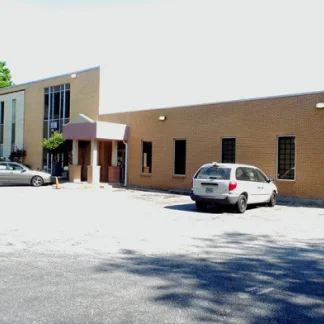Recovery Consultants of Atlanta
Recovery Consultants of Atlanta is a non-profit, faith-based, peer-led Recovery ...
Newport Integrated Behavioral Health - Moseri Road provides integrated behavioral, psychiatric, and substance abuse services. Newport Integrated Behavioral Health - Moseri Road is a private facility in the state of Georgia.
Contact us for more information: (404) 289-8223

Connect with Newport Integrated Behavioral Health by calling their admissions team directly.
(404) 289-8223 Website Get DirectionsThe Joint Commission, formerly known as JCAHO, is a nonprofit organization that accredits rehab organizations and programs. Founded in 1951, the Joint Commision's mission is to improve the quality of patient care and demonstrating the quality of patient care.
Joint Commission Accreditation: Yes
Research clearly demonstrates that recovery is far more successful and sustainable when loved ones like family members participate in rehab and substance abuse treatment. Genetic factors may be at play when it comes to drug and alcohol addiction, as well as mental health issues. Family dynamics often play a critical role in addiction triggers, and if properly educated, family members can be a strong source of support when it comes to rehabilitation. The family program is intertwined in the patient treatment plan, it is believed that family involvement and knowledge of the treatment plan is a key indicator to the long-term success of patients.
The group therapy is gender specific. It is offered for mental health and substance abuse services like: Chemical Dependency, anger Management and conflict resolution, coping skills, relaxation and meditation, relapse prevention, and parenting groups.
In individual therapy, a patient meets one-on-one with a trained psychologist or counselor. Therapy is a pivotal part of effective substance abuse treatment, as it often covers root causes of addiction, including challenges faced by the patient in their social, family, and work/school life. The individual therapy is provided by a Board Certified Psychiatrist or a Licensed Clinical Practitioners. The treatment plans are individualized and specific to patient’s needs or diagnosis.
Trauma therapy addresses traumatic incidents from a client's past that are likely affecting their present-day experience. Trauma is often one of the primary triggers and potential causes of addiction, and can stem from child sexual abuse, domestic violence, having a parent with a mental illness, losing one or both parents at a young age, teenage or adult sexual assault, or any number of other factors. The purpose of trauma therapy is to allow a patient to process trauma and move through and past it, with the help of trained and compassionate mental health professionals.
The group therapy is gender specific. It is offered for mental health and substance abuse services like: Chemical Dependency, anger Management and conflict resolution, coping skills, relaxation and meditation, relapse prevention, and parenting groups.
In individual therapy, a patient meets one-on-one with a trained psychologist or counselor. Therapy is a pivotal part of effective substance abuse treatment, as it often covers root causes of addiction, including challenges faced by the patient in their social, family, and work/school life. The individual therapy is provided by a Board Certified Psychiatrist or a Licensed Clinical Practitioners. The treatment plans are individualized and specific to patient’s needs or diagnosis.
Trauma therapy addresses traumatic incidents from a client's past that are likely affecting their present-day experience. Trauma is often one of the primary triggers and potential causes of addiction, and can stem from child sexual abuse, domestic violence, having a parent with a mental illness, losing one or both parents at a young age, teenage or adult sexual assault, or any number of other factors. The purpose of trauma therapy is to allow a patient to process trauma and move through and past it, with the help of trained and compassionate mental health professionals.
In individual therapy, a patient meets one-on-one with a trained psychologist or counselor. Therapy is a pivotal part of effective substance abuse treatment, as it often covers root causes of addiction, including challenges faced by the patient in their social, family, and work/school life. The individual therapy is provided by a Board Certified Psychiatrist or a Licensed Clinical Practitioners. The treatment plans are individualized and specific to patient’s needs or diagnosis.
Trauma therapy addresses traumatic incidents from a client's past that are likely affecting their present-day experience. Trauma is often one of the primary triggers and potential causes of addiction, and can stem from child sexual abuse, domestic violence, having a parent with a mental illness, losing one or both parents at a young age, teenage or adult sexual assault, or any number of other factors. The purpose of trauma therapy is to allow a patient to process trauma and move through and past it, with the help of trained and compassionate mental health professionals.
Trauma therapy addresses traumatic incidents from a client's past that are likely affecting their present-day experience. Trauma is often one of the primary triggers and potential causes of addiction, and can stem from child sexual abuse, domestic violence, having a parent with a mental illness, losing one or both parents at a young age, teenage or adult sexual assault, or any number of other factors. The purpose of trauma therapy is to allow a patient to process trauma and move through and past it, with the help of trained and compassionate mental health professionals.
Recovery Consultants of Atlanta is a non-profit, faith-based, peer-led Recovery ...
Reunited Counseling and Training is a private rehab located in Decatur, Georgia....
Ark Family Counseling Center is a private rehab located in Decatur, Georgia. Ark...
New Learning Center is a private rehab located in Decatur, Georgia. New Learning...